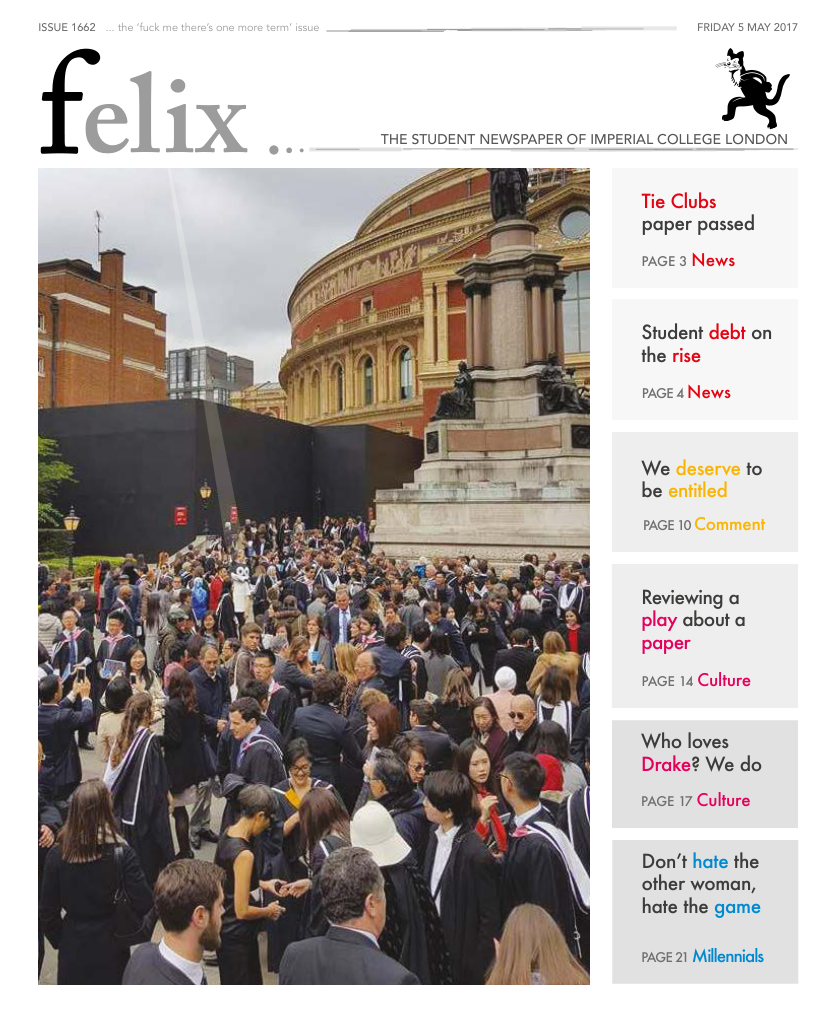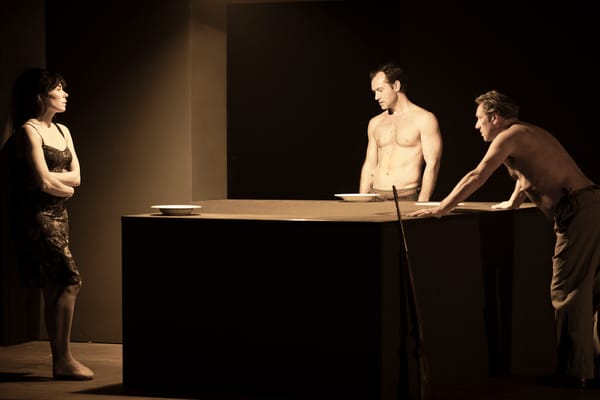Lost Gem Rediscovered | The Wipers Times
The Wipers Times is at the Arts Theatre until the 13th May and will tour the UK for the remainder of 2017

They are just a gang of back-chat comedians deliberately undermining morale with this impertinent, unpatriotic rag.” So goes Lieutenant Colonel Howfield’s complaint about The Wipers Times, a satirical trench newspaper brought to life in the Arts Theatre thanks to Ian Hislop and Nick Newman.
James Dutton is somewhat reminiscent of Alan Alda in MAS*H, playing Captain Fred Roberts who remains defiantly cheerful in the face of the horrors of his daily life yet is still privately vulnerable and afraid of what might happen in the very uncertain future. George Kemp is a perfect complement as Lieutenant Jack Pearson, who cautions and encourages Roberts in equal measure. Upon discovering a printing press, the pair decide to set up a weekly newspaper. Their endeavours are enabled by Sergeant Tyler (Dan Tetsell), who conveniently worked as a Fleet Street printer before war broke out. Despite complete editorial inexperience (and the difficulties that come with working in the middle of a warzone), Roberts and Pearson managed to print 23 issues of The Wipers Times (named after the mispronunciation of Ypres by the British soldiers) from its inception in 1917 to the end of the war in 1918.
Over the 100 years that have since passed, The Wipers Times and its creators were largely forgotten. Until Hislop found a copy of the paper whilst working on a Radio 4 documentary.
“Neither of us had seen anything like it before because it was so surprising to find that people were making jokes at all in that situation.” Newman explained during a Q&A session after one performance. The jokes are a stark contrast between terrible puns and what Hislop describes as a “sharp, black, callous, extraordinary level of humour.”
This dichotomy sets the tone of the show, which sandwiches the heart-breaking poignancy you would expect from a World War I drama between surreal sketches and comic music hall routines. It is refreshing to see that the entire cast is strong throughout these song-and-dance numbers. These musical interludes (used to glide from one scene to the next) are all original compositions from Nick Green and take poetry directly from the pages of the newspaper as their lyrics.
Almost as unexpected is the large number of women in amongst the uniformed Tommies. If I counted correctly, Clio Davies and Emilia Williams rotate between nine distinct female roles. In fact almost everyone in the cast switches effortlessly between multiple roles, whether that be between major roles (when not busy printing The Wipers Times as Sergeant Tyler, Tetsell is promoted to General Mitford and the Deputy Features Editor of the Daily News) or doubling up as a host in the fantasy hippodromes of Roberts’ mind.
Also to be saluted is the genuine camaraderie depicted between the men of the 24th Division, particularly Henderson (Kevin Brewer), Barnes (Jake Morgan), and new recruit Dodd (Peter Losasso). The credit for the best scene in the show however has to go to Sam Ducane and Ross McLaren, portraying jumped-up army sticklers Lieutenant Colonel Howfield and his aide-de-camp Bobbing Bobby. Roberts and his men can barely keep a straight face as Howfield (who is adamantly against the publication) asks if Roberts thinks the division is being offensive enough. Ducane also makes a rather wonderful (albeit incredibly brief) appearance as the most stereotypical Frenchman you could possibly imagine but I’ll leave you without context for that one.
One of the piece’s stronger points is its scope for improvisation. Newman jokes that “it’s very annoying that people like Dan [Tetsell] keep slipping in very funny lines”. On one occasion, a spilled glass prompted Tetsell (parodying a famous war correspondent) to remark “That went badly… it’s been a long war”, drawing thunderous applause from the audience. It’s the freedom to drop in moments like this that has allowed The Wipers Times to develop into a richer and more nuanced performance, despite its relatively short run. I should know — at time of going to press, I’ve been to the show six times and I have no plans to stop any time soon.
The Wipers Times moves from heart-racing exhilaration to touching sobriety at an incredible pace. At a recent performance, I heard an audience member saying how familiar the play feels. And it’s true. Every time I hear the overture, it feels like coming home – the common hope shared by all the British soldiers.










